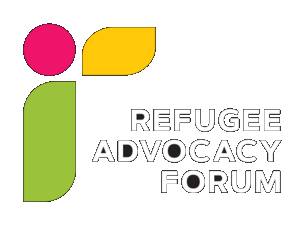Contents:
What is a General Election?
A General Election is when voters choose their next Member of Parliament (MP).
The UK is divided into constituencies, each represented by one MP. Voters in a constituency will be able to vote once for a local candidate, who will often be from a political party.
Whoever receives the most votes will become that constituency's MP and will represent them in the House of Commons. The political party who has the most MPs elected will then form the next government, and the leader of that party will become the Prime Minister.
The next UK General Election will be held on Thursday 4 July 2024.
To vote in the election, you need to register. The deadline for voter registration is 11.59pm on 18 June 2024.
Making our voices heard
This General Election is an important moment. It provides an opportunity for us to have a say on who the next government should be and the kinds of policies we want to see, whether on refugees and asylum or more broadly.
It's therefore crucial that people with lived experience of migration and seeking asylum in the UK can exercise their democratic rights and make their voices heard by casting their vote.
RCOs can play a crucial role by ensuring that members of our communities are well informed about the upcoming election and equipped to participate. One way to achieve this is by encouraging those we support to register and cast their vote. So please find our handy guide to supporting voter registration below!
And for an outline of the main party's policy positions on refugee and asylum issues, as well as answers to some commonly asked questions, take a look at the Refugee Council's FAQs.
How your organisation can support voter registration
Step one: Help community members check their eligibility to vote
Many communities in the UK are unaware that they have voting rights in Britain and Northern Ireland.
The Electoral Commission outlines who is eligible to vote on their website. If unsure, you can check someone's eligibility using the Can I Vote tool created by Citizens UK, Migrant Democracy Project and Just Register. There is an option to translate this into different languages.
And for more information and resources, take a look at Migrant Democracy Project's excellent online election hub.
Migrant Democracy Project General Election hub
Step two: Support voter registration
Encourage eligible voters to register online via the government's 'register to vote' webpage. This will only take five minutes!
You can also print and complete the registration form. To do so, contact your local Electoral Registration Office. Please note this will take a little longer.
To register, you will need to share your:
- Name
- Date of birth
- UK address
- Email address
- National Insurance number - this can be found on documents such as payslips, letters about benefits and student loan applications.
Eligible voters can still register if they can't find their National Insurance Number. There will be an option on the online registration form to say you don't have this. Your local authority will then ask you to give a bit more evidence to prove your eligibility.
There will also be an option to register for a postal vote or by 'proxy'.
Useful resources:
For more information on how to register, take a look at:
- Migrant Democracy Project's detailed video guide on who is eligible to vote and how to register.
- Promote the Migrant Vote's brilliant ‘Register to Vote’ guide and FAQs.
Alternatively, you can direct your clients towards the Just Register tool. All they will need to do is fill in their details, and then a volunteer will give them a call and help them register to vote.
Step three (optional): Organise a voter registration event
Another way to support voter registration in your community is by holding an in-person voter registration drive, where you help eligibile voters fill out the online form. You may have even run this before!
This can be a separate event or you can set up a stall at an existing event. All you will need is:
- A working computer and internet connection.
- Someone - or a group of volunteers - who knows how to register people and can help on the day.
- A way to record how many people you helped to register. With their permission, you could also use these details to remind them to vote on 4 July.
Once you have chosen a date and time, promote this far and wide by word of mouth, email or social media - and don't forget to remind people to bring their National Insurance number!
For more information, Migrants Organise have a great guide to organising voter registration drives.
Voter registration drive guide
Make sure you follow charity and election law by not encouraging participants to vote for a particular party or candidate.
More important information on voting
Once registered to vote, make sure to share the following important information with your communities:
In-person voting will take place between 7am and 10pm on Thursday 4 July.
- Voting will take place at your local polling station. Once registered, you will recieve a 'polling card' in the post with information on which polling station you will need to vote at.
- If you lose this, you can find your assigned polling station online.
If you are voting in, you will need to bring photo ID with you.
- Accepted forms of photo ID include your passport, driving license and biometric resident's permit. You can find a list of all accepted documents of the Electoral Commission website.
- Don't have photo ID? You can apply for free voter ID (called a 'Voter Authority Certificate'). The deadline for this is 5pm, Wednesday 26 June. You can apply on the Electoral Commission's website.
If you have any questions, get in touch with us at RCOsupportenquiries@refugeecouncil.org.uk. Let's amplify the voices of refugees together this General Election!
